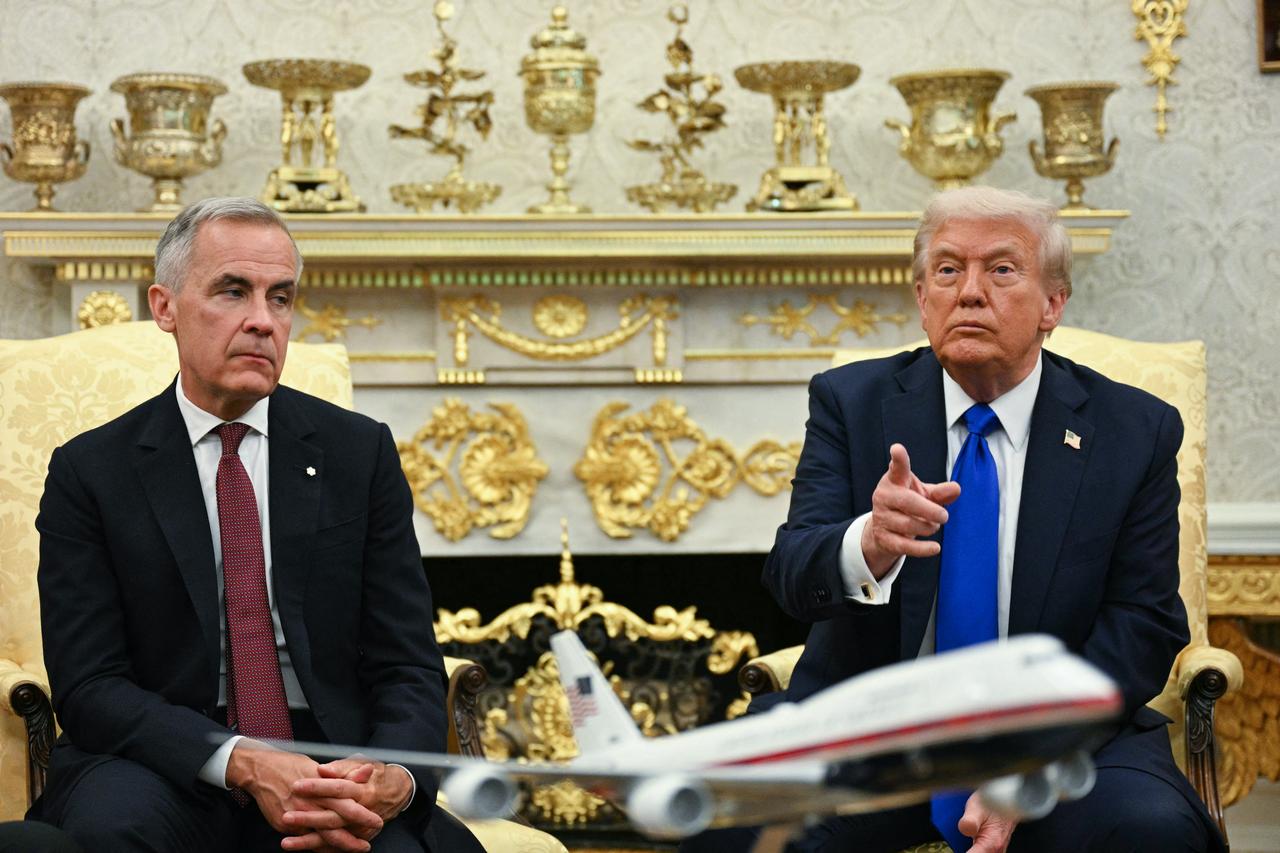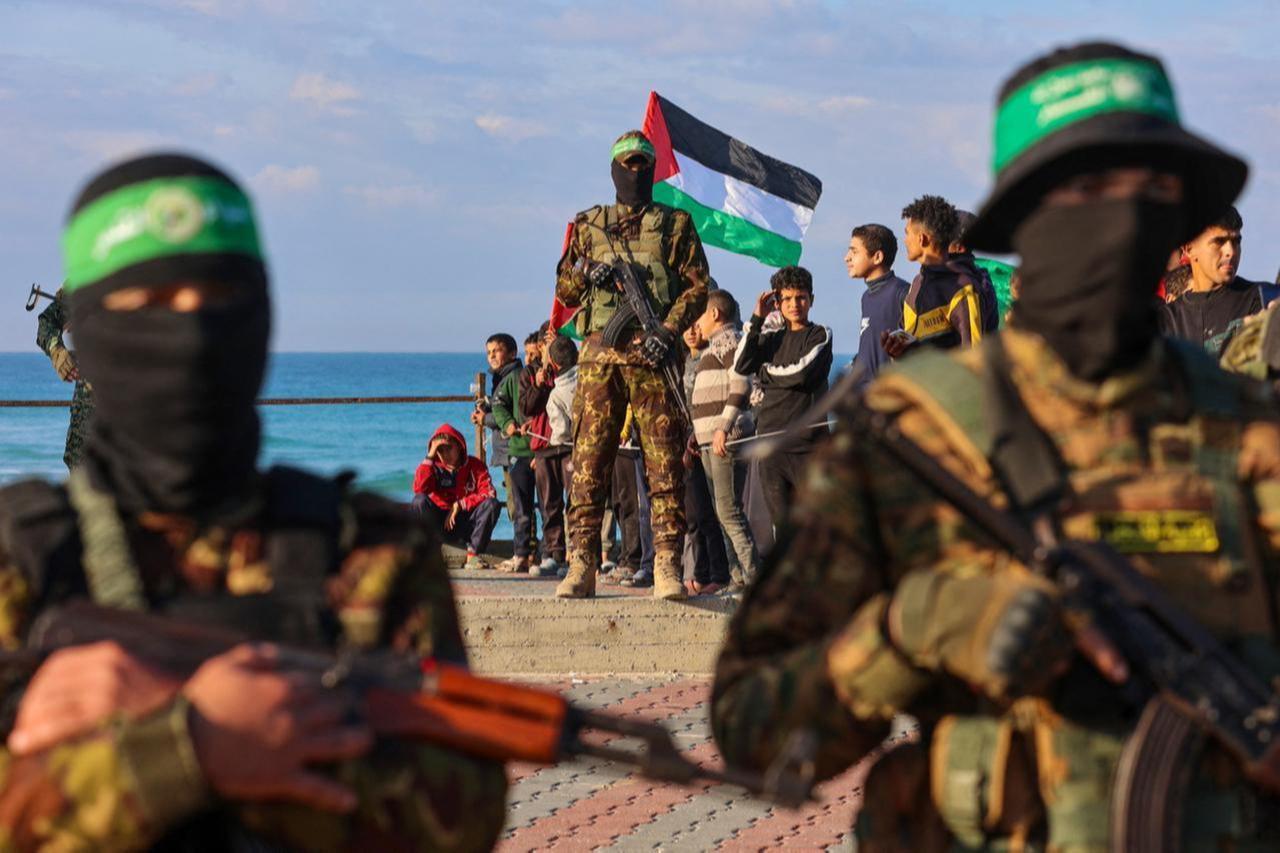
President Donald Trump expressed cautious optimism Tuesday about reaching a deal to end the war in Gaza, as negotiations between Israeli and Hamas delegations entered their second day in Egypt coinciding with the second anniversary of the October 7 attack.
"There's a real chance that we could do something," Trump told reporters at the Oval Office, confirming that American negotiators were participating in the indirect talks taking place in Sharm El-Sheikh. "I think there's a possibility that we could have peace in the Middle East. It's something even beyond the Gaza situation. We want a release of the hostages immediately."
The talks focus on a framework Trump presented last month that calls for a ceasefire, release of all hostages, Hamas's disarmament and a phased Israeli withdrawal from Gaza. Both sides have responded positively to the proposal, marking a potential breakthrough after two years of devastating conflict.
Trump pledged the United States would do "everything possible to make sure everyone adheres to the deal" should an agreement be reached.
The diplomatic push comes as Israel observed the somber second anniversary of the October 7, 2023 attack, when Hamas-led militants launched what became the deadliest assault in Israeli history. The attack, which occurred at the close of the Jewish festival of Sukkot, killed 1,219 people, mostly civilians, according to an AFP tally of official Israeli figures. Militants seized 251 hostages, with 47 remaining in captivity and 25 presumed dead by the Israeli military.
Senior Hamas official Fawzi Barhoum on Tuesday characterized the attack as a "historic response" to Israeli efforts to "eradicate the Palestinian cause," while pledging to "surmount all obstacles" toward reaching an agreement in Egypt.

According to a Palestinian source close to the Hamas negotiating team, Tuesday's session focused on "the initial maps presented by the Israeli side regarding the withdrawal of troops as well as the mechanism and timetable for the hostage-prisoner exchange." Hamas insists on connecting the timeline for releasing captives to Israel's withdrawal schedule.
International involvement in the talks is expanding. Trump's special Middle East envoy Steve Witkoff is scheduled to join negotiations Wednesday, Egyptian Foreign Minister Badr Abdelatty announced. Qatar's prime minister, Sheikh Mohammed bin Abdulrahman Al Thani, and Türkiye's intelligence chief Ibrahim Kalin are also expected to participate.
"The primary guarantee of success at this stage is US President Trump himself... even if it comes to a point to require him imposing a vision," Abdelatty said.
The conflict has exacted a staggering toll on Gaza. At least 67,160 people have been killed, according to the health ministry in the Hamas-run territory—figures the United Nations considers credible. The data indicates over half the dead are women and children, though it does not distinguish between civilians and combatants. Much of Gaza lies in ruins, and the UN has declared a famine is unfolding in the territory.
A UN probe last month accused Israel of genocide in Gaza, while rights groups have accused Hamas of war crimes and crimes against humanity during the October 7 attack. Both sides reject the allegations.
International pressure to end the conflict has intensified as Israeli hostage families continue waiting for their loved ones' return. At the site of the Nova music festival, where more than 370 people were killed and dozens taken hostage, relatives gathered Tuesday to light candles and observe a minute of silence.
"Now it's two years. And I'm here to be with her, because this is the last time that she was alive," said Orit Baron, 57, whose daughter Yuval died at the festival with her fiancé Moshe Shuva. "I feel that right now she's with me here."
Another ceremony was scheduled for Tel Aviv's Hostages Square, where weekly rallies have maintained pressure for the captives' release.
For many Palestinians in Gaza, exhaustion has replaced hope. "My dream is for the war to end now, not tomorrow," said Abeer Abu Said, 21, who lost seven family members in the conflict. "I don't trust anyone—from the Israeli negotiators or even Hamas—they all lie to us. Negotiations for the sake of negotiations, while we die every minute."
Abdelatty said the current negotiations aim to implement a "first phase" of the agreement "to create conditions for the release of the hostages, the access for aid and the release of Palestinian prisoners." He added: "This, therefore, requires the redeployment of Israeli military so that we can work to implement this phase."
Israeli strikes continued Tuesday, killing at least six people according to Gaza's civil defense agency, a rescue force operating under Hamas's authority.